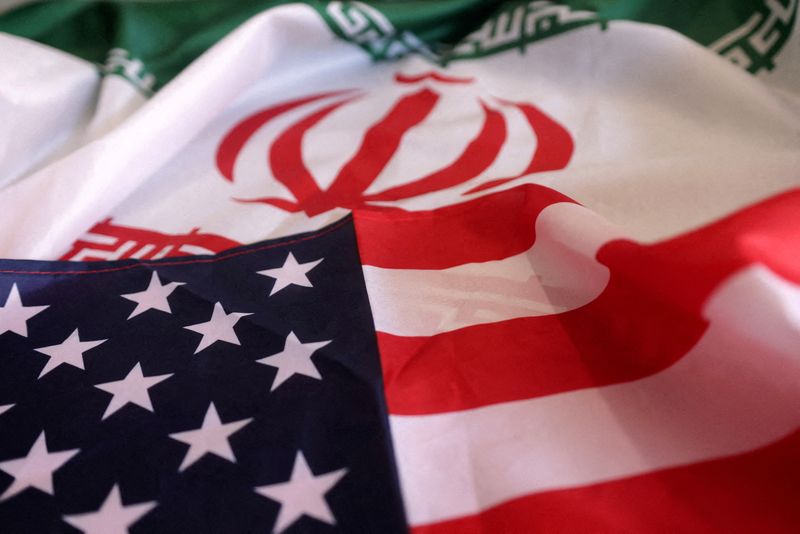
By Timothy Gardner
WASHINGTON (Reuters) – Former President Donald Trump’s return to the White House could mean tougher enforcement of U.S. oil sanctions against Iran, potentially trimming global supplies, but could also carry geopolitical risks including raising the ire of its top customer China, according to analysts.
Cracking down on OPEC-member Iran would support global oil prices, but the effect could also be offset by other Trump policies, from measures to expand domestic drilling, the imposition of tariffs on China that could depress economic activity, or an easing of relations with Russia that could unfetter its sanctioned crude shipments.
“Trump cuts both ways for oil prices,” said Clay Seigle, board member at the Houston Committee on Foreign Relations and chairman of its Finance Committee.
Iranian crude exports have shot to the highest level in years in 2024 as the country found ways to sidestep punitive sanctions targeting its revenue. Trump re-imposed the sanctions during his first presidency after he unilaterally withdrew the U.S. from a Western nuclear deal with Tehran in 2018.
Trump, a Republican, has said during his campaign that President Joe Biden’s policy of not rigorously enforcing oil export sanctions has weakened Washington and emboldened Tehran, allowing it to sell oil, accumulate cash and expand its nuclear pursuits and influence through armed militias.
Jesse Jones, head of North American upstream at Energy Aspects said a Trump administration returning to a maximum pressure campaign on Iran could lead to a million-barrel-per-day (bpd) decrease in Iranian crude exports.
“That could be done relatively quickly without additional legislation, just by enforcing sanctions that are already on the books,” he said.
ClearView Energy Partners, a research group, has estimated some 500,000 bpd to 900,000 bpd, could be taken out of the market.
‘MILLION-DOLLAR QUESTION’
But a tougher stance on Iran also means cracking down on China, which does not recognize U.S. sanctions and is the Islamic Republic’s biggest oil customer.
“The million-dollar question is how much significant financial pressure you’re willing to put on Chinese financial institutions,” said Richard Nephew, a Columbia University professor and a former U.S. Deputy Special Envoy for Iran.
Nephew said China could retaliate by strengthening work in the BRICS club of emerging economies, consisting of Brazil, Russia, India, China, South Africa and others, including by reducing reliance on the dollar in deals in oil and other goods.
Trump spoke at the New York Economic Club in September about the risks to dollar dominance that sanctions can bring.
“I was a user of sanctions, but I put them on and take them off as quickly as possible, because ultimately it kills your dollar, and it kills everything the dollar represents,” Trump said at the time.
“So I use sanctions very powerfully against countries that deserve it, and then I take them off, because, look, you’re losing Iran. You’re losing Russia,” he said.
Seigle said that cracking down on Iran could be bullish for oil prices. But the impact could be muted especially if Trump follows through on campaign promises to impose blanket tariffs on U.S. imports to protect domestic manufacturing, including 60% levies on anything from China.
“A trade war that pulls down GDP would reduce oil demand and take prices lower,” Seigle said.
Ed Hirs, energy fellow at the University of Houston, said Trump was also likely to ease sanctions on Russia’s energy industry, imposed by Western countries as punishment over Russia’s invasion of Ukraine. Trump promised during his campaign to “settle” the war in Ukraine before taking office in January.

“I would expect Trump would relieve all sanctions on Russian oil,” Hirs said.
Western sanctions on Russian oil are not intended to halt flows, but only to limit Russia’s revenue from exports to $60 a barrel for those sales using Western maritime services. The sanctions have shifted the market for Russian oil off Europe to China and India, adding costs for Russia.
This post is originally published on INVESTING.




